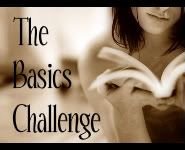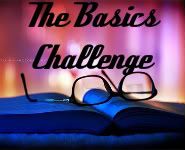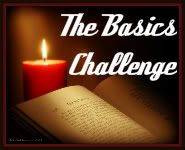This is a re-post from Emily Cross’s post on The Writer’s Chronicle – June 30, 2009.
Recently I've been thinking a lot about 'categories' and 'genre' in regards to my writing and that of my favourite books. "The Gargoyle"; "The Book Thief"; "Darkmans"; "Beyond Black"; "Life of Pi"; "The Book of lost things"; "Kafka on the shore"; "Neverwhere"; "American Gods" Often when some one asks about these books, its hard to call them, fantasy/ science fiction/literary because they are both but neither. As Carter Scholz & Bruce Sterling states, there is this new emergent genre:
it is a contemporary kind of writing which has set its face against consensus reality. It is a fantastic, surreal sometimes, speculative on occasion, but not rigorously so. It does not aim to provoke a "sense of wonder" or to systematically extrapolate in the manner of classic science fiction.
Instead, this is a kind of writing which simply makes you feel very strange; the way that living in the late twentieth century makes you feel, if you are a person of a certain sensibility. We could call this kind of fiction Novels of Postmodern Sensibility, but that looks pretty bad on a category rack, and requires an acronym besides; so for the sake of convenience and argument, we will call these books "slipstream."
He further continues that:
It seems to me that the heart of slipstream is an attitude of peculiar aggression against "reality." These are fantasies of a kind, but not fantasies which are "futuristic" or "beyond the fields we know." These books tend to sarcastically tear at the structure of "everyday life."Some such books, the most "mainstream" ones, are non-realistic literary fictions which avoid or ignore SF genre conventions. But hard-core slipstream has unique darker elements. Quite commonly these works don't make a lot of common sense, and what's more they often somehow imply that *nothing we know makes* "a lot of sense" and perhaps even that *nothing ever could*.
It's very common for slipstream books to screw around with the representational conventions of fiction, pulling annoying little stunts that suggest that the picture is leaking from the frame and may get all over the reader's feet. A few such techniques are infinite regress, trompe-l'oeil effects, metalepsis, sharp violations of viewpoint limits, bizarrely blase' reactions to horrifically unnatural events . . . all the way out to concrete poetry and the deliberate use of gibberish. Think M. C. Escher, and you have a graphic equivalent."
Is this the new wave for the genre of SF/Fantasy?
According to Rosenfield's article slipstream writers in reference to Carter Scholz and Sterlings article (above quoted and below listed) include just about everyone writing fantastic fiction working outside the "Science Fiction and Fantasy" section of the bookstore e.g. Paul Auster, Margaret Atwood, Kathy Acker, William Burroughs, Steve Erickson, Gabriel Garcia Marquez and Phillip Roth
But what of New Wave Fabulism?
"Fabulism," you see, is a term used to describe Magical Realist writings by people who are not Latin.New Wave Fabulism is the term invented by Conjunctions to cast a broader net, to include fantastic writing that simply isn't Magical Realism. In practical terms one wonders what the difference between "New Wave Fabulism" and "Slipstream" really is? Why didn't Conjunctions just call the issue "Slipstream" and be done with it?
The real difference between the terms is an illustration of why we can't declare the tension between those inside and outside the genre finally over and break out the champaign. The term "Slipstream" was created by Bruce Sterling to describe people predominantly outside the genre, but because he himself was inside of it, talking to people inside of it, the term has come to be used primarily by the SF community. "New Wave Fabulism," however, was proposed by a literary magazine to describe people inside the genre, and it is already coming to be used by people in the Literary world as a way to describe SF writers who are, you know, "good," because apparently we can't just call it Speculative Fiction without turning people off. In 2006 an anthology was released with the unwieldy title of Paraspheres: Extending Beyond the Spheres of Literary and Genre Fiction: Fabulist and New Wave Fabulist Stories. In the statement-of-purpose essay from this anthology, editor Ken Keegan reveals:
On several occasions I initially described the work we would be publishing as "speculative fiction," only to receive a response like, "Oh, you mean science (or fantasy, or genre) fiction. I don't read science (or fantasy or genre) fiction. I only read literary fiction."
So essentially Slipstream and New Wave Fabulism are one and the same - a mix of literary and SF and according to Rosenberg's article both sides of this 'new genre' (literary and SF) are breaking out in hives at the thought of mentioning the other genre's existence.
The difference between Literary Fiction and Speculative Fiction is not the content, but the communities, communities which are often wildly ignorant about one another, and more significantly, openly hostile to one another. Which is not to say there aren't exceptions; obviously Bruce Sterling reads Literary Fiction and the editors of Conjunctions read Speculative Fiction. But the very existence of two terms, "Slipstream" and "New Wave Fabulism," to describe something that, if they aren't the same thing, might as well be, highlights the communal divisions even between the people who are most open to crossing their borders.
*sigh* i started this post, excited that i could label my favourite books with a genre name and be able to say i read 'such and such' genre and maybe be able to find more books that are similar. . . Now it sounds like i just walked onto the bookworld version of westside story!?!?!?!
THE SLIPSTREAM LIST - Carter Scholz & Bruce Sterling
ACKER, KATHY - Empire of the Senseless
ACKROYD, PETER - Hawksmoor; Chatterton
ALDISS, BRIAN - Life in the West
ALLENDE, ISABEL - Of Love and Shadows; House of
Spirits
AMIS, KINGSLEY - The Alienation; The Green Man
AMIS, MARTIN - Other People; Einstein's Monsters
APPLE, MAX - Zap; The Oranging of America
ATWOOD, MARGARET - The Handmaids Tale
AUSTER, PAUL - City of Glass; In the Country of Last
Things
BALLARD, J. G. - Day of Creation; Empire of the Sun
BANKS, IAIN - The Wasp Factory; The Bridge
BANVILLE, JOHN - Kepler; Dr. Copernicus
BARNES, JULIAN - Staring at the Sun
BARTH, JOHN - Giles Goat-Boy; Chimera
BARTHELME, DONALD - The Dead Father
BATCHELOR, JOHN CALVIN - Birth of the People s
Republic of Antarctica
BELL, MADISON SMARTT - Waiting for the End of the
World
BERGER, THOMAS - Arthur Rex
BONTLY, THOMAS - Celestial Chess
BOYLE, T. CORAGHESSAN - Worlds End; Water Music
BRANDAO, IGNACIO - And Still the Earth
BURROUGHS, WILLIAM - Place of Dead Roads; Naked Lunch;
Soft Machine; etc.
CARROLL, JONATHAN - Bones of the Moon; Land of Laughs
CARTER, ANGELA - Nights at the Circus; Heroes and
Villains
CARY, PETER - Illywhacker; Oscar and Lucinda
CHESBRO, GEORGE M. - An Affair of Sorcerers
COETZEE, J. M. - Life and rimes of Michael K.
COOVER, ROBERT - The Public Burning; Pricksongs &
Descants
CRACE, JIM - Continent
CROWLEY, JOHN - Little Big; Aegypt
DAVENPORT, GUY - Da Vincis Bicycle; The Jules Verne
Steam Balloon
DISCH, THOMAS M. - On Wings of Song
DODGE, JIM - Not Fade Away
DURRELL, LAWRENCE - Tunc; Nunquam
ELY, DAVID - Seconds
ERICKSON, STEVE - Days Between Stations; Rubicon Beach
FEDERMAN, RAYMOND - The Twofold Variations
FOWLES, JOHN - A Maggot
FRANZEN, JONATHAN - The Twenty-Seventh City
FRISCH, MAX - Homo Faber; Man in the Holocene
FUENTES, CARLOS - Terra Nostra
GADDIS, WILLIAM - JR; Carpenters Gothic
GARDNER, JOHN - Grendel; Freddy's Book
GEARY, PATRICIA - Strange Toys; Living in Ether
GOLDMAN, WILLIAM - The Princess Bride; The Color of
Light
GRASS, GUNTER - The Tin Drum
GRAY, ALASDAIR - Lanark
GRIMWOOD, KEN - Replay
HARBINSON, W. A. - Genesis; Revelation; Otherworld
HILL, CAROLYN - The Eleven Million Mile High Dancer
HJVRTSBERG, WILLIAM - Gray Matters; Falling Angel
HOBAN, RUSSELL - Riddley Walker
HOYT, RICHARD - The Manna Enzyme
IRWIN, ROBERT - The Arabian Nightmares
ISKANDER, FAZIL - Sandro of Chegam; The Gospel
According to Sandro
JOHNSON, DENIS - Fiskadoro
JONES, ROBERT F. - Blood Sport; The Diamond Bogo
KINSELLA, W. P. - Shoeless Joe
KOSTER, R. M. - The Dissertation; Mandragon
KOTZWINKLE, WILLIAM - Elephant Bangs Train; Doctor
Rat, Fata Morgana
KRAMER, KATHRYN - A Handbook for Visitors From Outer
Space
LANGE, OLIVER - Vandenberg
LEONARD, ELMORE - Touch
LESSING, DORIS - The Four-Gated City; The Fifth Child
of Satan
LEVEN, JEREMY - Satan
MAILER, NORMAN - Ancient Evenings
MARINIS, RICK - A Lovely Monster
MARQUEZ, GABRIEL GARCIA - Autumn of the Patriarch; One
Hundred Years of Solitude
MATHEWS, HARRY - The Sinking of the Odradek Stadium
McEWAN, IAN - The Comfort of Strangers; The Child in
Time
McMAHON, THOMAS - Loving Little Egypt
MILLAR, MARTIN - Milk, Sulphate and Alby Starvation
MOONEY, TED - Easy Travel to Other Planets
MOORCOCK, MICHAEL - Laughter of Carthage; Byzantium
Endures; Mother London
MOORE, BRIAN - Cold Heaven
MORRELL, DAVID - The Totem
MORRISON, TONI - Beloved; The Song of Solomon
NUNN, KEN - Tapping the Source; Unassigned Territory
PERCY, WALKER - Love in the Ruins; The Thanatos
Syndrome
PIERCY, MARGE - Woman on the Edge of Time
PORTIS, CHARLES - Masters of Atlantis
PRIEST, CHRISTOPHER - The Glamour; The Affirmation
PROSE, FRANCINE - Bigfoot Dreams, Marie Laveau
PYNCHON, THOMAS - Gravity's Rainbow; V; The Crying of
Lot 49
REED, ISHMAEL - Mumbo Jumbo; The Terrible Twos
RICE, ANNE - The Vampire Lestat; Queen of the Damned
ROBBINS, TOM - Jitterbug Perfume; Another Roadside
Attraction
ROTH, PHILIP - The Counterlife
RUSHDIE, SALMON - Midnight's Children; Grimus; The
Satanic Verses
SAINT, H. F. - Memoirs of an Invisible Man
SCHOLZ, CARTER & HARCOURT GLENN - Palimpsests
SHEPARD, LUCIUS - Life During Wartime
SIDDONS, ANNE RIVERS - The House Next Door
SPARK, MURIEL - The Hothouse by the East River
SPENCER, SCOTT - Last Night at the Brain Thieves Ball
SUKENICK, RONALD - Up; Down; Out
SUSKIND, PATRICK - Perfume
THEROUX, PAUL - O-Zone
THOMAS, D. M. - The White Hotel
THOMPSON, JOYCE - The Blue Chair; Conscience Place
THOMSON, RUPERT - Dreams of Leaving
THORNBERG, NEWTON - Valhalla
THORNTON, LAWRENCE - Imagining Argentina
UPDIKE, JOHN - Witches of Eastwick; Rogers Version
VLIET, R. G. - Scorpio Rising
VOLLMAN, WILLIAM T. - You Bright and Risen Angels
VONNEGUT, KURT - Galapagos; Slaughterhouse-Five
WALLACE, DAVID FOSTER - The Broom of the System
WEBB, DON - Uncle Ovid's Exercise Book
WHITTEMORE, EDWARD - Nile Shadows; Jerusalem Poker;
Sinai Tapestry
WILLARD, NANCY - Things Invisible to See
WOMACK, JACK - Ambient; Terraplane
WOOD, BARI - The Killing Gift
WRIGHT, STEPHEN - M31: A Family Romance
Slipstream/cyberpunk book reviews





